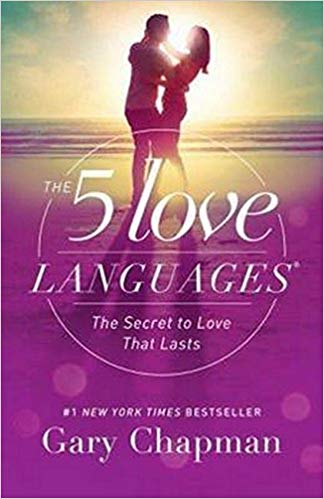

This article is an excerpt from the Shortform summary of "The 5 Love Languages" by Gary Chapman. Shortform has the world's best summaries of books you should be reading.
Like this article? Sign up for a free trial here .
What are “love language gifts”? What is the Receiving Gifts love language? How do I speak it? What if my partner’s language is the Receiving Gifts love language, but it’s not mine?
The Receiving Gifts love language is a way of expressing love through the act of giving gifts. The concept of the Receiving Gifts love language was introduced in Gary Chapman’s The 5 Love Languages.
Learn what the best love language gift is and how to “speak” the Receiving Gifts love language, even if it’s not your love language.
Speaking the Receiving Gifts Love Language
You’ve heard the phrase, “It’s the thought that counts.” For the person with the Receiving Gifts love language, that thought means more than anything else in the relationship. These gifts are “love language gifts.”
A gift represents thought. When you choose a love language gift for someone, you consider who they are and what they like. When you receive a love language gift, you know that person was thinking about you.
The act of obtaining and giving a love language gift symbolizes effort. The receiver of the gift feels love because that effort was made for them. It is not the size of the love language gift that matters. The gesture is everything.
Think about gifts you gave your parents as a child. Or, if you are a parent, think about how you feel when your child draws you a picture or makes you breakfast in bed. It warms the heart to feel that kind of love from them. It makes you feel special. You know their love is real and deep.
A love language gift can be considered a tangible symbol of love. The person with the Receiving Gifts love language cherishes that symbol. Seeing it and feeling it reminds them of your love. If there is no tangible evidence of your love, your partner may have a hard time feeling it or believing in it.
The type of love language gift holds little importance.
- For someone who does not speak the Receiving Gifts love language, an expensive gift may mean more than something small or homemade.
- A person with the Receiving Gifts love language doesn’t care what the gift is. A diamond bracelet is as appreciated as a ring pop. Whether they wear the bracelet or see the plastic ring that once held the sucker, they will remember the feeling of receiving it. They will remember the meaning of the gesture.
The Love Language Gift Giver
If your partner speaks this love language, you may feel pressure to buy things all the time. Maybe you are not a natural gift-giver or have not received many love language gifts in your life. The Receiving Gifts love language is one of the easiest languages to master.
Everyone has given love language gifts to their loved ones. Birthdays, Christmas, Hanukkah, Valentine’s Day, and other holidays all carry traditions of giving gifts. For these occasions, you likely had to put some intentional thought into what to get your partner.
Past gifts can help you understand how to fill your partner’s love tank.
- Think about gifts your partner was really excited about, whether from you or others.
- If you aren’t sure which love language gifts your partner likes, ask family and friends what they remember. Or, ask them what they think your partner will like.
Beyond these occasions, giving love language gifts at random can fill your partner’s tank even more. People expect to receive gifts on certain days of the year. At these times, the quality of the gift may be the focus. In contrast, love language gifts given without a particular reason are acknowledged more for the symbolism.
A found or handmade love language gift given for no reason shows your partner you care and think about them often.
- For example, planting your partner’s favorite flower or vegetable in your yard is a gift they can cherish many times over.
- If your partner loves Fall, bringing home a beautiful leaf tells them you know who they are and want to bring joy to their lives.
Sometimes, however, it is necessary to spend money on love language gifts. If spending money is not a comfortable or enjoyable activity for you, you may feel resentful of a partner who speaks the Receiving Gifts love language. You may not understand why you need to spend money for your partner to feel loved. You may feel like sacrificing your security is too great a hardship.
- But if your partner speaks the Receiving Gifts love language, spending money is an investment in your security. Speaking your partner’s love language is not about you. It’s about what they need.
- The love your gift will bring can satisfy them in a way nothing else will. That satisfaction can translate into a happy relationship.
The Single Best Gift for Speakers of the Receiving Gifts Love Language
The gift of you is sometimes the best love language gift you can give. This gift involves making yourself available in times of need or prioritizing your partner over other obligations when the moment requires.
- For instance, if Thursday nights are your weekly poker nights with friends but your partner has come home upset and needs to talk, forgoing your poker night to stay with them can be an immense expression of love.
- Likewise, if your partner must visit an ailing parent in the hospital, offering or agreeing to go with them can symbolize your love more than anything else.
Your physical presence and sacrifice become love language gifts. Your partner will understand the meaning of you being there, and their love tank will fill up.
If you refuse to give up your poker night or don’t realize the importance of being there for your partner during a difficult time, the resulting feeling will be of lack for your partner. The feeling of love will diminish. The memory will be of not receiving love.
Even if you do not understand the importance of your presence, a request from a partner who speaks the Receiving Gifts love language of Receiving Gifts is significant. If your intention is to show more love to your partner, obliging their request will help you achieve just that.
The Receiving Gifts love language differs from Quality Time in that a partner who speaks Receiving Gifts is not wholly interested in dedicated moments spent together. Instead, they appreciate the gift of your presence when they are in need of it.
How to Receive Gifts
If you speak the Receiving Gifts love language, receiving love language gifts from your partner makes you feel special. You become filled with love because you know they were thinking of you. If your partner doesn’t give you love language gifts often, the depth of your love feelings may be shallow. You may not truly feel loved.
If your language is the Receiving Gifts love language, it is important for you to communicate this to your partner. You are not a mind reader, so you cannot expect your partner to be. Don’t expect them to understand how important something is to you or how much you enjoy tangible expressions of love.
When you do receive a small love language gift, let them know how much it means to you.
- Show them how loved you feel.
- If they see how special their gesture made you feel, they will want to make you feel that way again.
If you desire your partner’s presence, make sure they understand how important their being there is to you.
- You might say, “I’d really appreciate it if you came to the hospital with me” or “I don’t want to go through this alone.”
- If they comply, make sure to show your appreciation.
- If your partner took off work to comfort you during a time of crisis, tell them how much them being there meant or how it made you feel.
The more you can communicate your brand of love to your partner, the more equipped they will be to express it.
———End of Preview———

Like what you just read? Read the rest of the world's best summary of "The 5 Love Languages" at Shortform . Learn the book's critical concepts in 20 minutes or less .
Here's what you'll find in our full The 5 Love Languages summary :
- How to figure out what your love language is, and what your partner's is
- Why arguments happen in relationships, and how to stop them
- How to speak the right love language, even if it's not yours






